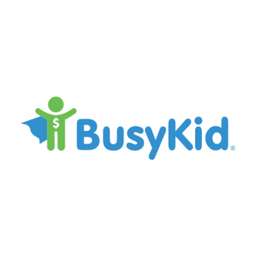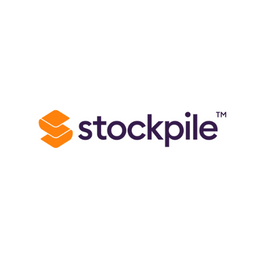A financial education can set you up for a better and more fulfilling life. Making smarter decisions with your money can help you reach key financial milestones sooner and have a smoother retirement. Having more control over your finances makes homeownership feel more attainable and presents numerous benefits.
Unfortunately, most people don’t have their finances in order. Roughly 60% of Americans live paycheck to paycheck, and many people are behind on their retirement goals. Teaching your child about money can help them stay ahead of the curve and achieve financial independence in the future. Getting them started with a bank account can accelerate the learning process.
Can Kids Have Their Own Bank Accounts?
Kids can have bank accounts, but they cannot open bank accounts on their own until they turn 18. An adult must assist a child with creating a bank account. You can achieve this goal through joint or custodial accounts. Joint accounts give the parent and child equal control of the finances, while a custodial account is managed by the parent until the child turns 18.
Popular Bank Accounts and Financial Tools for Kids
The Greenlight debit card for kids helps parents teach good financial habits to kids through a managed app and personal savings tools.
Learn how to help your children manage their money while rewarding them with the GoHenry debit card and app.
Learn how to provide a debit card to your kids and keep track of all their transactions with the BusyKid app.
Learn how Stockpile allows you and your kids to invest in ETFs, stocks and cryptocurrency, opening custodial accounts in their mobile app.
What is a Bank Account for Kids?
A bank account for kids helps children build up their finances early. These accounts offer children quicker paths to opening a bank account. A parent must supervise this account and create it for the child.
How Does a Bank Account for Kids Work?
Bank accounts for kids allow your child to deposit and withdraw funds. However, parents have controls set up on the account. Some bank accounts for kids have built-in limits to prevent children from overspending. These features can build financial discipline and help your child make good financial decisions in the future.
Parents can deposit money into their children’s bank accounts. This capability makes it easier for parents to give their children allowances and help with surprise expenses. Children can open traditional bank accounts when they turn 18 to get more flexibility with how they can use their accounts.
How Early Can Kids Have Their Own Bank Accounts?
A custodial bank account or joint bank account can help your child open a bank account as early as possible. However, these accounts give your child limited functionality. Your child can open their own bank account after turning 18 years old.
Checking vs. Savings Bank Account for Kids
Children can open checking and savings accounts with the help of an adult. Some parents open checking and savings accounts for their children. Checking accounts contain cash ready to be spent, while savings accounts are better for building up wealth.
Having your child put some money into both accounts can teach them the value of building an emergency fund and giving them some money to spend. A savings account can make more sense if your child spends little money or intends to make fewer than six monthly withdrawals.
Savings accounts have higher interest rates than checking accounts, meaning your money compounds faster. Having your child put money into a savings account instead of a checking account gives them risk-free returns. Checking accounts also have interest, but those rates are far less impressive.
Where Can You Open a Bank Account for Kids?
Many banks let parents open bank accounts for their kids. You can set up a joint account at most banks, and many others also let you create custodial accounts. Before committing to them, you should check if a bank offers these capabilities.
Some banks have accounts specifically designed for children, with controls over how they spend their money. These banks let you monitor your kid’s spending while giving them a sense of financial empowerment.
What You Should Look for in a Bank Account for Kids
Helping your kid get started with a bank account can teach them a lot about money. It’s better to educate your child now than wait for them to get out of school and start a career. However, some bank accounts for kids are better than others. You should consider these factors before committing to an account.
Initial Deposit and Maintaining Balance
Many bank accounts have initial deposit requirements to get started. While a $100 initial deposit may feel doable, raising enough funds for a $1,000 initial deposit is more challenging.
While smaller deposit requirements make it easier to get started, it’s also important to consider minimum balance requirements. Some banks require you to keep a few hundred dollars in your kid’s account to avoid monthly fees. Other banks do not have any minimum balance requirements, which makes it easier for your kid to use all of their cash if necessary.
Fees and Interest Rates
Banks have various fees for their accounts. While it’s possible to avoid some of these fees, you should know what they are. For instance, if your kid overdraws their account, it can trigger an overdraft fee. This fee costs $30-$35 at most financial institutions. Overdraft fees represent one of many costs your kid can incur with their bank account.
Interest rates can help compensate for some of these fees, especially if the money gets put into a high-yield savings account. It’s possible to find high-yield accounts yielding 4% APY or higher. These rates become easier to find if you deviate away from big firms and look for smaller banks. Some online banks offer 5% APY to attract new customers and retain existing customers.
Financial Education
Opening a bank account can give your child a financial education. Your kid can learn how to manage money through experience, but some banks help along the journey. These financial institutions may offer educational resources, such as articles and videos, that teach core financial skills.
Banks that offer resources to bolster your kid’s financial education can help them on the path to financial independence. Some banks are designed to teach kids how money works instead of stopping at allowing you to create a joint or custodial account. Any extra help you can get in this area from the bank you choose can make a big difference.
Account Accessibility
A bank account needs to be accessible on multiple devices. The bank should have a good website and a mobile app that enables easy transfers. This level of accessibility can help your kid manage multiple bank accounts.
If you have any issues with accessing your account or have any questions, the bank should have a good customer support team. Representatives on this team should have the ability to quickly answer questions and resolve issues. You can look at a bank’s online reviews on sites like Trustpilot to gauge the quality of its customer service.
Other Features and Incentives
Banks offer various features and incentives to get you started. Some banks make it easy for people to invest their money, set savings goals, create multiple accounts to categorize objectives and save on fees. If you shop around for bank accounts that cater to kids, you can compare features and see which ones you like the most.
Security
When you put money into a bank, you want to make sure it is secure. Consumers should only work with banks that are insured by the FDIC. The Federal Deposit Insurance Corporation insures the first $250,000 of a bank account. That type of protection helped consumers who had their funds in Silicon Valley Bank when the regional bank went under.
While FDIC insurance is standard protection, you should also look at a bank’s commitment to cybersecurity. The best banks invest in cybersecurity software, use data encryption, have SSL websites, and apply other strategies to protect consumer data. Any breach can result in personal information getting leaked, so it’s best to pick a reliable bank that takes online security seriously.
Popular Bank Accounts and Financial Tools for Kids
The Greenlight debit card for kids helps parents teach good financial habits to kids through a managed app and personal savings tools.
Learn how to help your children manage their money while rewarding them with the GoHenry debit card and app.
Learn how to provide a debit card to your kids and keep track of all their transactions with the BusyKid app.
Learn how Stockpile allows you and your kids to invest in ETFs, stocks and cryptocurrency, opening custodial accounts in their mobile app.
The Benefits of Your Kid Having Their Own Bank Account
Giving your child a bank account opens up many benefits. If you are on the fence and need some reasons to open a bank account for your kid, consider these benefits.
Teaches Kids About the Value of Money
Money is a valuable resource that gives people more choices. Having more money gives you more flexibility with where you live, how you spend your time, and how many vacations you take. Those are some of the things money impacts, and it’s better for kids to learn this while they are still kids.
Kids may come to appreciate money and what it can provide. They can see how much mileage they get out of their $10 allowance and learn about opportunity costs. For instance, if a child has $10 and buys an $8 toy, that child cannot then buy a $5 toy. Some kids may opt to buy two toys worth $5 each instead of an $8 toy.
Money lessons can start with toys, evolve into social events like dining, and branch out into all areas of their life. Starting with small sums of money can condition your children to understand the value of money.
Learn How to Plan for the Future
Financial goals require long-term focus. If you want to retire early, you have to commit to that goal for several years. You have to plan out your expenses, consider ways to downsize during your retirement years and know what type of retirement lifestyle you want to have.
Your kids probably aren’t thinking about their own retirements. However, they may think about raising enough money to buy a $300 video game console. Saving that much money requires a long-term commitment. Your kid may work extra hours at their job or a side hustle if they are of age. If your kid relies on allowances to fund these purchases, your kid may save up money or negotiate for a higher allowance. Inviting your child to negotiate a higher allowance and what they would do to earn it can also strengthen negotiating skills.
Develops Good Financial Habits
Good financial habits can lead to a more prosperous future for your kid. Learning how to save money, keep a budget, and minimize expenses can give them better opportunities in life. A bank account gives your child the opportunity to strengthen their discipline and learn from their mistakes early on. Learning as a kid with less money is more beneficial than making big mistakes with larger sums of money as an adult.
Gain Hands-on Experience
Opening a bank account will give your child hands-on experience with money and deciding how to allocate it. You can teach your child the best practices and how to manage money, but it’s easier to cement those lessons with experience. Experience is the best teacher, and if you combine it with a good financial education, your child may get more opportunities in the future.
Save for a Goal
A bank account can teach your kid to save for a goal. Their goals can change based on their interests, money saved each week, and other factors. Saving for a goal and eventually buying the desired item can make other goals feel more manageable for your kid. Your kid will feel the sense of achievement that comes from buying things with their own money instead of constantly seeking someone else to pay for them.
While these goals may focus on wants in the beginning, they can shift to needs in the future. Your kid can use previous success to plan for portfolio goals in the future. Knowing how to allocate money and keeping the goal in mind can help your kid navigate many financial scenarios.
Invest Early On
Investing early allows people to earn higher returns on their capital. Time in the market can increase your potential returns and lead to a smoother retirement. While it’s better to invest later than to never start at all, it’s ideal to start as soon as possible.
Teaching your child to save money in a bank account can inspire them to invest in a portfolio. You can open a custodial account for your child to help them get started. Some kids may feel the desire to create portfolios and buy some assets upon turning 18. Frequent exposure to money and compounding can lead to early investments. You can show your child how their money grows in a high-yield savings account to demonstrate the power of investing.
Helps Build Confidence
Your kid can feel more comfortable with money with experience. Every dollar saved builds discipline and can make your child think about their possibilities. Generating small wins and instilling good financial habits can lead to more confidence in other areas of their lives.
Your kid may excel in school because of the confidence they build from managing their money in bank accounts. Offering positive reinforcement and complementing your kid on their money management skills can strengthen their confidence even more. Confidence can give your kid the desire to pursue more ambitious goals in all areas of their life.
What Do You Need to Open a Bank Account for Your Kids?
Parents who are eager to open a bank account for their kids will need to provide a few documents. Banks will want to know your child’s date of birth, name, and Social Security number. You will also have to provide your identification document, Social Security number, and other personal information. Your child will need an email address to create an account at most financial institutions.
Some banks will require additional details, such as a minimum deposit, to open your account. However, banks request similar identification documents and don’t stretch much beyond that, if at all.
Should You Open a Bank Account for Your Kids?
Opening a bank account for your child can be a great decision. This action will give your child more practice with managing money. Your kid can learn how to develop financial discipline and create plans for achieving their goals. If your child receives a $15 allowance and wants to buy a $150 product, reaching their goal will take ten weeks of consistent saving.
Your kid knows that spending money on other products along the way will prolong their path to the $150 product. Considering this factor can help your child ignore tempting products and services that aren’t unnecessary and would deviate them from the main goal.
Opening a bank account for your kid can help them learn the fundamentals of money management. No matter what you do, your child will eventually have to make decisions concerning money. Right now, your kid may decide which toy to get with their cash. However, those decisions will evolve. Your child will have to decide between buying or renting a home. Your kid will also have to decide on the right car for their budget when they become adults. It’s also possible your future adult will use public transportation to save on the monthly expenses of owning a car.
Teaching your kids about money now gives them a head start. They are more likely to make investments and have more financial control over their futures. Money is a valuable resource that gives people more choices. Getting your child started with a bank account now can minimize or eliminate financial problems in the future.














